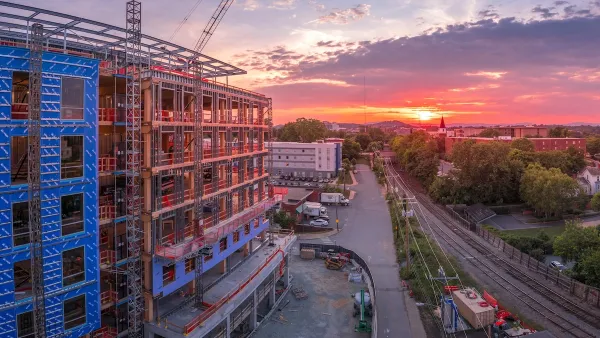Although they're not decision-making bodies, D.C.'s Advisory Neighborhood Committees (ANC’s) exert a powerful influence on the city's development process. David M. Schwarz Architects examine whether that's for better or for worse.
The District of Columbia Home Rule Act, Home Rule Charter, and subsequent rulemaking have given the ANC's “great weight” in D.C.'s decision making process, says David M. Schwarz Architects. "Architects know firsthand how this great weight applies to all matters before the Zoning Commission, Board of Zoning Adjustments, Office of Planning, Department of Transportation, Historic Preservation Review Board and other agencies through which we must marshal our projects."
With Washington D.C. facing several significant citywide policy debates (including a rewrite of the city's zoning regulations and potential changes to the Height Act), they call on the ANC's to raise their level of discussion and resist putting local parochial interests ahead of the city at large.
"ANC participation must be an accurate cross section of the entire community," the firm urges. "We should attend meetings regularly and contest any unsubstantiated claims by our commissioners or neighbors. Consider challenging incumbents, if they do not represent the views of the entire neighborhood. Commissioners must step up their game, as well. They ought to broaden their horizon and consider the entire city in addition to their immediate constituents, for they cannot truly meet the needs of their constituents without also considering the bigger picture. They must resist any extremist views from within the community calling for narrow-minded protectionism."
FULL STORY: HELPFUL OR HURTFUL: THE POWER OF ANCS IN DC DEVELOPMENT

Maui's Vacation Rental Debate Turns Ugly
Verbal attacks, misinformation campaigns and fistfights plague a high-stakes debate to convert thousands of vacation rentals into long-term housing.

Planetizen Federal Action Tracker
A weekly monitor of how Trump’s orders and actions are impacting planners and planning in America.

San Francisco Suspends Traffic Calming Amidst Record Deaths
Citing “a challenging fiscal landscape,” the city will cease the program on the heels of 42 traffic deaths, including 24 pedestrians.

Defunct Pittsburgh Power Plant to Become Residential Tower
A decommissioned steam heat plant will be redeveloped into almost 100 affordable housing units.

Trump Prompts Restructuring of Transportation Research Board in “Unprecedented Overreach”
The TRB has eliminated more than half of its committees including those focused on climate, equity, and cities.

Amtrak Rolls Out New Orleans to Alabama “Mardi Gras” Train
The new service will operate morning and evening departures between Mobile and New Orleans.
Urban Design for Planners 1: Software Tools
This six-course series explores essential urban design concepts using open source software and equips planners with the tools they need to participate fully in the urban design process.
Planning for Universal Design
Learn the tools for implementing Universal Design in planning regulations.
Heyer Gruel & Associates PA
JM Goldson LLC
Custer County Colorado
City of Camden Redevelopment Agency
City of Astoria
Transportation Research & Education Center (TREC) at Portland State University
Jefferson Parish Government
Camden Redevelopment Agency
City of Claremont





























